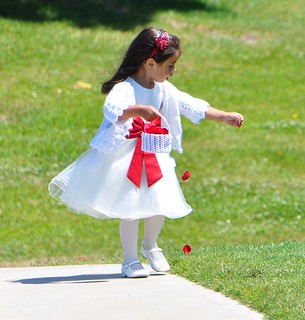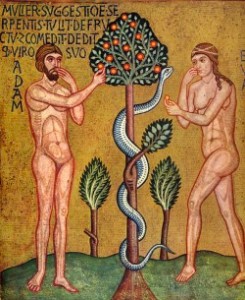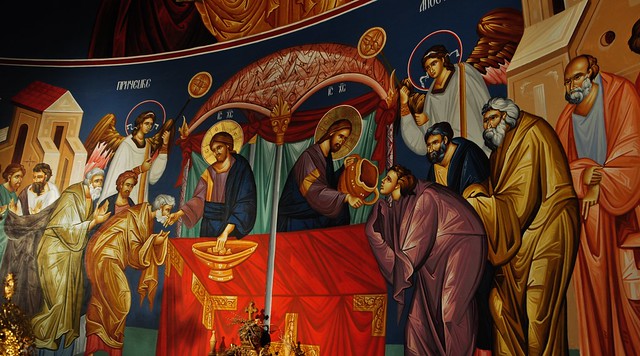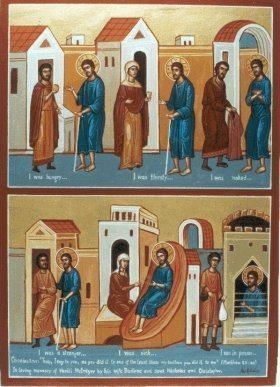“For as the rain and the snow come down from heaven, and return not thither but water the earth, making it bring forth and sprout, giving seed to the sower and bread to the eater, so shall my word be that goes forth from my mouth; it shall not return to me empty, but it shall accomplish that which I purpose, and prosper in the thing for which I sent it.”(Isaiah 55:10-11)
Because the Word of God is living, that Word interacts with all those who receive Him. The Word of God is not to be confused with letters printed in a book, though sometimes He may come to us under the guise of those letters. The Prophet Jeremiah testifies over and over:
Now the word of the LORD came to me saying, …
God’s Word speaks to us, in our hearts, leaping off the pages of the bible and actively engaging our hearts, minds, souls, imaginations, bearing spiritual fruit for God in this world. The word of God becomes seed in our hearts where it can germinate and bear fruit.
As for what was sown on good soil, this is he who hears the word and understands it; he indeed bears fruit, and yields, in one case a hundredfold, in another sixty, and in another thirty.” (Matthew 13:23)
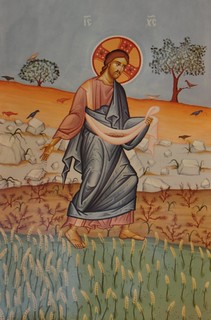 We see there is no “one size fits all” mentality regarding the Word of God. God’s Word bears fruit differently in each person – in one case a hundredfold, in another sixty, and in another thirty. The living Word is not a static one, fixed on a page; rather, the Word interacts with the believer at the spiritual level of the person. There is not just one message in a verse but an abundance of seeds in each – and and all can bear varied fruit in the believers, and so it does. We each may hear the same Word, and yet like on Pentecost (Acts 2:4-12), it will be in the language we understand, even if we understand the Word on different levels due to abilities, experience, education, intelligence, perception. That sown seed will blossom in us proportionate to our abilities. What speaks to each of us from the same Word may be slightly different than what speaks to our fellow believer, but we receive from God what we need to know and hear. Nikitas Stithatos expresses this quite well in THE PHILOKALIA:
We see there is no “one size fits all” mentality regarding the Word of God. God’s Word bears fruit differently in each person – in one case a hundredfold, in another sixty, and in another thirty. The living Word is not a static one, fixed on a page; rather, the Word interacts with the believer at the spiritual level of the person. There is not just one message in a verse but an abundance of seeds in each – and and all can bear varied fruit in the believers, and so it does. We each may hear the same Word, and yet like on Pentecost (Acts 2:4-12), it will be in the language we understand, even if we understand the Word on different levels due to abilities, experience, education, intelligence, perception. That sown seed will blossom in us proportionate to our abilities. What speaks to each of us from the same Word may be slightly different than what speaks to our fellow believer, but we receive from God what we need to know and hear. Nikitas Stithatos expresses this quite well in THE PHILOKALIA:
 “The reading of the Scriptures means one thing for those who have but recently embraced the life of holiness, another for those who have attained the middle state, and another for those who are moving rapidly towards perfection.
“The reading of the Scriptures means one thing for those who have but recently embraced the life of holiness, another for those who have attained the middle state, and another for those who are moving rapidly towards perfection.
For the first, the Scriptures are bread from God’s table, strengthening their hearts (cf. Ps. 104:15) in the holy struggle for virtue and filling them with forcefulness, power and courage in their battle against the spirits that activate the passions, so that they can say, ‘For me Thou hast prepared a table with food against my enemies’ (Ps. 23:5).
 For the second, the Scriptures are wine from God’s chalice, gladdening their hearts (cf. Ps. 104:15) and transforming them through the power of the inner meaning, so that their intellect is raised above the letter that kills and led searchingly into the depths of the Spirit (cf. 2 Cor. 3:6; 1 Cor. 2:10), In this way they are enabled to discover and give birth to the inner meaning, so that fittingly they can exclaim, ‘Thy chalice makes me drunk as the strongest wine’ (Ps. 23:5. LXX).
For the second, the Scriptures are wine from God’s chalice, gladdening their hearts (cf. Ps. 104:15) and transforming them through the power of the inner meaning, so that their intellect is raised above the letter that kills and led searchingly into the depths of the Spirit (cf. 2 Cor. 3:6; 1 Cor. 2:10), In this way they are enabled to discover and give birth to the inner meaning, so that fittingly they can exclaim, ‘Thy chalice makes me drunk as the strongest wine’ (Ps. 23:5. LXX).
Finally, for those approaching perfection the Scriptures are the oil of the Holy Spirit (cf. Ps. 104:15), anointing the soul, making it gentle and humble through the excess of the divine illumination they bestow, and raising it wholly above the lowliness of the body, so that in its glory it may cry, ‘Thou hast anointed my head with oil’ (Ps. 23:5) and ‘Thy mercy shall follow me all the days of my life’ (Ps. 23:6).” (Kindle 38302-38331)
 What Stithatos does is to remind us of the Parable of the Talents – Jesus says the master gives differing amounts of wealth to the various people each according to their ability (Matthew 25:15). And there are differing expectations as to what each person will do with what God gives them – to whom much is given, much is expected (Luke 12:48). So too when we hear the Gospel, we receive it in different degrees/amounts according to our abilities. Some are able to give away all they have before following Christ, others give to charity while still owning homes and holding jobs and supporting families. Some are able to accept martyrdom, some are able to bear having their face slapped and turning the other cheek, some are able to pray for enemies. Some bear fruit, 30 or 60 fold, and some 100 fold. We all hear the same Gospel (same words) but it becomes incarnate in each of us differently, according to our abilities, our spiritual maturity and according to what God gives us and expects from us. Some repent as soon as they hear the Gospel and spend the remaining time of their life in repentance, while others repent on their deathbed. Whether they come at the 1st or 11th hour, they are accepted. Reading the scriptures is not our reading meaning into God’s Word, but rather is hearing God’s Word within our selves and interacting with that Word and allowing Him to bear fruit in us. [And, as in the Parable of the Talents, there is a right handling of the word, and one can mishandle it as well – not all possible meanings one can get from the text are in fact right.]
What Stithatos does is to remind us of the Parable of the Talents – Jesus says the master gives differing amounts of wealth to the various people each according to their ability (Matthew 25:15). And there are differing expectations as to what each person will do with what God gives them – to whom much is given, much is expected (Luke 12:48). So too when we hear the Gospel, we receive it in different degrees/amounts according to our abilities. Some are able to give away all they have before following Christ, others give to charity while still owning homes and holding jobs and supporting families. Some are able to accept martyrdom, some are able to bear having their face slapped and turning the other cheek, some are able to pray for enemies. Some bear fruit, 30 or 60 fold, and some 100 fold. We all hear the same Gospel (same words) but it becomes incarnate in each of us differently, according to our abilities, our spiritual maturity and according to what God gives us and expects from us. Some repent as soon as they hear the Gospel and spend the remaining time of their life in repentance, while others repent on their deathbed. Whether they come at the 1st or 11th hour, they are accepted. Reading the scriptures is not our reading meaning into God’s Word, but rather is hearing God’s Word within our selves and interacting with that Word and allowing Him to bear fruit in us. [And, as in the Parable of the Talents, there is a right handling of the word, and one can mishandle it as well – not all possible meanings one can get from the text are in fact right.]
Reading God’s Word is not quite the same as discerning the meaning of the words in the bible. It means allowing the Word to act upon our hearts, minds and souls so that we together with the Word produce spiritual fruit for God in His creation. The Word of God is living and active. It’s animating vitality is not found in the pages of a book, but when written on the heart of the believer. Only in our hearts does it reveal its vitality and vigor.





